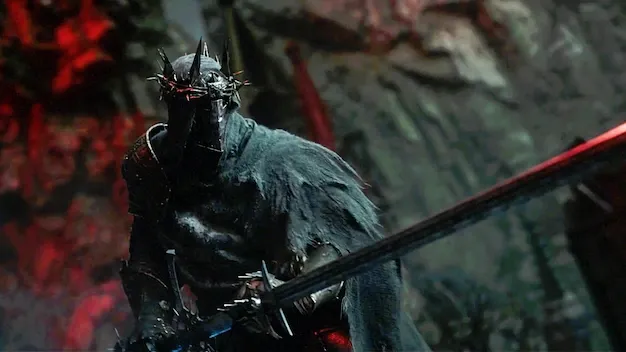A Look at the History of Looking Glass Studios
A few weeks ago, it was written about the purchase and sale of the
intellectual property of Eidos Interactive, a significant publisher and player
in the history of gaming. In that story, they briefly touched on an important
development studio that was under the auspices of the former Eidos - Looking
Glass Studios, the team responsible for a whole series of games that left a
deep mark among players but also in the entire industry.
Like a lot
of things in the early days of PC gaming, the very influential Richard
Garriot, founder of Origin Systems and author of many successful games on this
platform during the eighties and early nineties, had a hand in the creation of
Looking Glass Studios, albeit indirectly.
Garriot decided to
relocate his company's headquarters back to Texas after spending several years
operating in New England. He left behind the old space equipment and several
developers, among whom was Paul Neurath - the founder and head of Looking
Glass Studios from the beginning of the studio until its shutdown - who at
that time had already started work on Ultima Underworld, LGS's first the
game.
But Looking Glass wasn't Looking Glass yet. Namely, Neurath and his colleague from the time at Origin, Ned Lerner, founded a new company called Blue Sky Productions. The name, in this case, testified to the experience and provenance of the two founders, who were recognizable to the gaming audience as the authors of aircraft and space simulation.
Lerner's reputation in this field also attracted the attention of physicist Seamus Blackley, who would work together with Lerner and Neurath on Flight Unlimited - a flight simulation developed and released by Looking Glass, now under a new name, in mid-1995.
Flight Unlimited was a very ambitious project for a development studio that was breaking into the market, which was then sovereignly ruled by Microsoft with its simulator, Microsoft Flight Simulator 5. Furthermore, the success achieved by Flight Unlimited also ensured the immediate future of the company, as well as the development of other projects.
Unfortunately, the same could not be said for System Shock, Looking Glass' action adventure with role-play elements. System Shock received rave reviews upon release and won the hearts of gamers, becoming one of the iconic and highly influential games developed by Looking Glass. However, in commercial terms, the game could not boast of success.
As underlined, System Shock attracted a lot of attention - and among the
players enchanted by this game was Ken Levin, the founder of Irrational Games
and the creator of the BioShock franchise.
However, in addition to
the association with the two "Shock" franchises (System Shock 2, and BioShock
and BioShock: Infinite), Levin is also credited with laying the foundation for
another Looking Glass legendary series of games.
Namely, Levin
joined Looking Glass during the period in which the team of developers was
thinking about the next project, which eventually crystallized as Thief: The
Dark Project. A game that still holds a high place among stealth games to this
day.
However, after laying the groundwork for Thief (mainly
creating the fiction and setting for the game), Levin left the project to
begin work on what he wanted - a sequel to System Shock.
On the
now legendary System Shock 2, Levin worked in the company of several other
developers who separated from Looking Glass and became the now recognized
Irrational Games. This era was the most creatively fruitful for Looking Glass.
In just a few years, the studio released Thief: The Dark Project, its expanded version titled Thief: Gold, System Shock 2, and finally, Thief 2 - the games that secured LGS's place in the gaming world.
Alas, the status successes did not match the market ones. Since the mid-nineties, Looking Glass Studios has made money mainly from the sale of Flight Limited and its sequel.
Thief, System Shock and Thief 2, no matter how revolutionary, did not provide LGS with relief from the financial woes the studio was going through. By 2000, Looking Glass Studios experienced a financial collapse, the outcome of which was the closure of the company and the sale of the studio's intellectual property.
The last days of work in the company's premises were recorded in the form of a documentary dedicated to the creation of Thief 2, which was the last game created by LGS and published by Eidos Interactive, which in a few years will acquire the rights to the series through Ion Storm.
Ironically, the creativity and uniqueness of the games that Looking Glass Studios worked on were the main cause of the company's shutdown. LGS created its games in a period in which consoles (primarily PlayStation 1) began to gain momentum in the market, reducing the PC gaming market by drawing existing and future players away from this platform, and the games that regularly recorded success on the PC market were Quake (1996 .) and its sequel (1997) as well as Unreal and Half-Life (both 1998).
It would have been much more favorable for LGS if they had worked on safer
games like the previous FPS giants during this period. But the developer's
opinion was not in favor of creating such titles.
Additionally, the
audience that played their games was dedicated but significantly smaller than
the market midstream during that period.
Seen from today's perspective - the outcome could not have been different.
Looking Glass failed, but it left behind talented developers who went in
various directions and achieved great success in other development studios, as
well as a catalog of games whose DNA can be found in dozens, if not hundreds,
of games that have been in front of players in more than two decades since the
closure of the company.












![No Applicable Update Data Was Found PS3 [SOLVED]](https://blogger.googleusercontent.com/img/a/AVvXsEjAzj9SB3vST0IHYlul0gn55WTbuwcUIkjmU91tP7_NOecY6C4s8_PRZxVKDBXzBuix-G0R24UZox1YFc27FeCefGHxbb_sE2q00PnF-O01RKcyA8JyB_Ug7lctPHvmps5nPKSGbg6YyzOUeM3YariQCoV81cjRxJqe6l4AfV15jjVOzd0ObDfhkuF2lg=s16000-rw)





